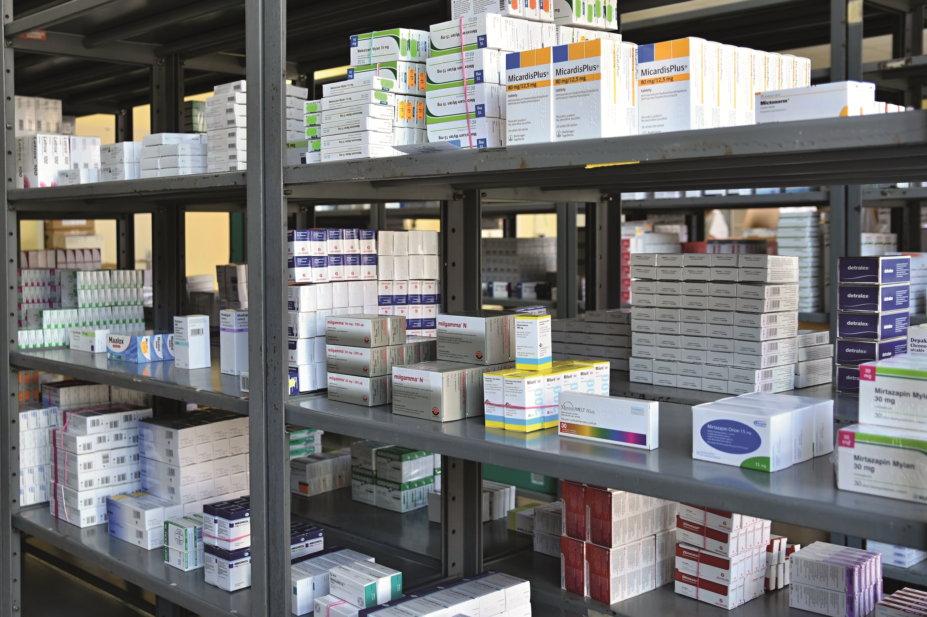
Shutterstock.com
The government has said it plans to consult the public on a national scheme to detect falsified medicines in the supply chain within a year after laws enabling the potential new scheme are enacted.
In published documents relating to the Medicines and Medical Devices Bill, the government has said it is “committed to a public consultation around the need and details of any national scheme, as well as a specific consultation on the use of data collected as part of any scheme”.
The documents said the government aims to begin consultation within 12 months of the Bill receiving Royal Assent.
The Bill, which was first laid before parliament on 13 February 2020, aims to introduce delegated powers allowing existing regulatory frameworks to be updated following Brexit and includes broad proposals for a national scheme to combat falsified medicines.
The national scheme would replace the Falsified Medicines Directive (FMD), which was introduced across the EU in February 2019. The FMD ceased to apply in Great Britain when the Brexit transition period ended on 31 December 2020.
Under the terms of the withdrawal agreement, the FMD continues to apply in Northern Ireland, and the UK Medicines Verification System (UK MVS) became the UKNI MVS from 1 January 2021. The UKNI MVS is, like the original UK-wide system, operated by SecurMed.
Jerome Bertin, general manager of SecurMed, said that, when considering the proposals, “some sort of hybrid national scheme that takes into account what the whole of the UK requires, not just Great Britain (GB), will be needed”.
He added that “when considering the GB element of the national scheme, the DHSC/MHRA (Department of Health and Social Care/Medicines and Healthcare products Regulatory Agency) will want to take into account the positive benefits and features of EU FMD, while resolving and simplifying some of the more unworkable or onerous requirements for the UK medicines supply chain”.
Bertin said a “key factor” will be around “access to, and additional uses of, data within the system”.
“We know that there is significant value, but also commercial sensitivity, in the data the UKNI Medicines Verification System holds in relation to the medicines supply chain. EU FMD provides strict controls on usage and access to the data to provide assurance to industry stakeholders about the security and protection of their commercially sensitive information. It is good to see that the proposed public consultation will have a specific focus on the use of data collected and we hope this resolves into similar strong controls over security, protection, access and usage of any data within the draft regulations for the GB element of an FM national scheme”.
Concerns about the use of data collected as part of a national system were raised in September 2020, when, in a House of Lords debate, Lord Clement-Jones said that Clause 3 of the Bill “considerably broadens the original data-collection provisions of the Falsified Medicines Directive”.
A spokesperson for the National Pharmacy Association said that “the end of FMD in Great Britain provides an opportunity to deliver the patient safety benefits of an anti-counterfeiting system — but in a way that is more flexible and in line with the way that medicine supply works in the UK”.
“There are different ways to prevent counterfeit medicines reaching patients — pharmacy-level scans at the point of supply is just one option. Ultimately, any effective system needs to protect patients and deter counterfeiters, without imposing a disproportionate burden of time and cost.”
The spokesperson added that “there should be much closer consultation with the supply chain stakeholders than was ever undertaken by the EU, to get a tailored system that meets the needs of the UK”.
Sandra Gidley, president of the Royal Pharmaceutical Society, said she “believes that it is vital that the patient safety benefits of an anti-counterfeiting system are delivered in a way that is flexible and in line with medicine supply systems in the UK”.
In October 2020, the Royal Pharmaceutical Society wrote to health secretary Matt Hancock calling for “robust plans” to be put in place “to help authenticate the legitimacy of medicines that move between the EU and the UK”.
You may also be interested in

‘No evidence’ that paracetamol use during pregnancy causes autism, ADHD or intellectual disabilities, meta-analysis finds

Levetiracetam information updated to include studies that suggest no link to autism
